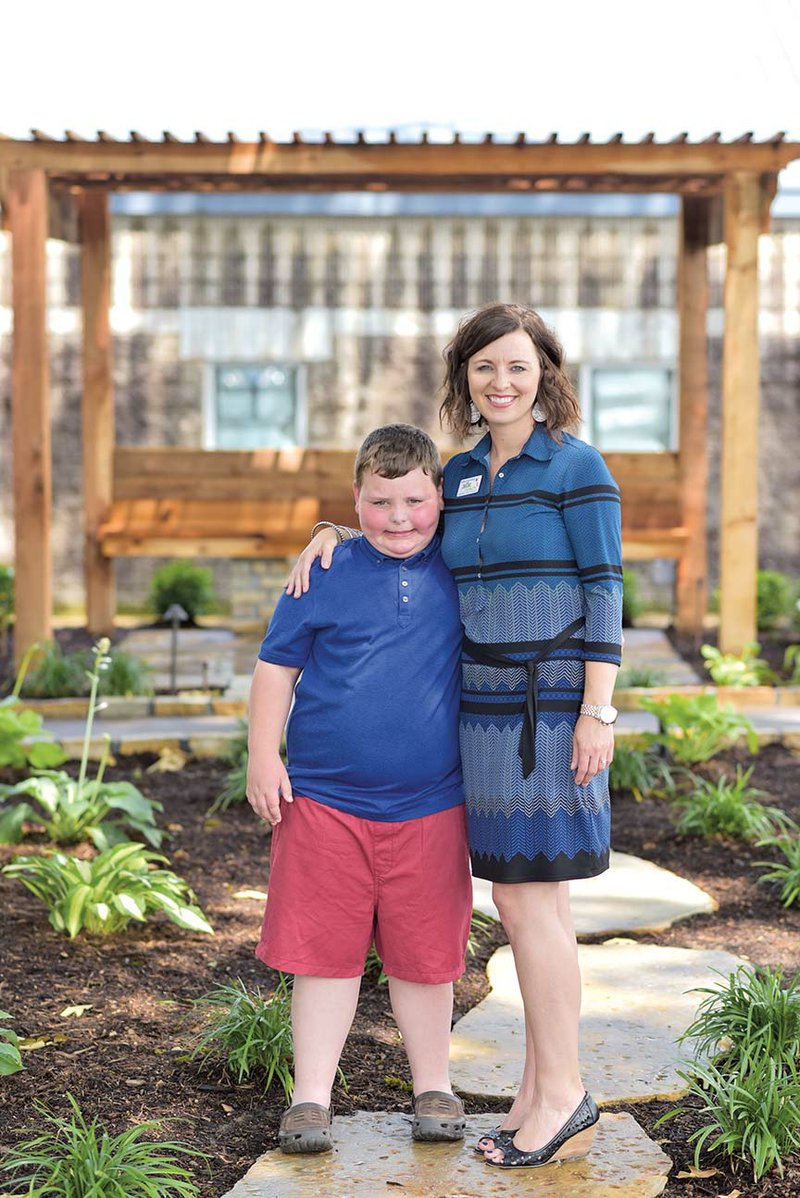Holly Crutchfield of Benton recognized something different in her son when he was about 18 months old.
Noah had been social and interactive up until that point, but then Holly, a licensed clinical social worker, noticed his extreme sensory sensitivities. He started being picky with food and wouldn’t respond when she called his name.
“He would engage, but he wasn’t progressing as a typically developing toddler,” Crutchfield said. “And he was so impulsive. One time I entered the dining room to find him sitting on top of the table. I have no idea how he figured out how to get up there.”
Holly and her husband, also a mental-health professional, didn’t seek outside help until Noah was 2. They were at a swim lesson, where Noah wasn’t fazed by the constant, high-energy chatter of his counterparts. The intense and involved way he was flinging the water also was an indicator that something was different with him, and it was time to seek a professional opinion.
Noah, now 9, is a curious, smart child living with autism, his mother said. He enjoys swimming and participating in any water-related activity.
“The rougher, the better,” Crutchfield said. He also likes to make his own videos on YouTube.
On the 1-3 autism scale, Noah falls between the 1 and 2 ranking. He engages with family and friends and is in touch emotionally, his mom said. Children who rank at the third level are emotionally detached, she said.
As a mother of a child with autism, as well as a typically developing son, Crutchfield has made it her mission in life to help other families learn to live and thrive with an autism diagnosis. And receiving a diagnosis is now made easier with the REACH Pediatric Health Services Autism Center in Bryant, where Crutchfield is the diagnostic clinic coordinator.
The diagnostic center opened in January as a specialty clinic under Arkansas Therapy Outreach. Arkansas Therapy Outreach Executive Director Rebekah James envisioned the autism center about a year ago, wanting to do something more specialized for children with autism.
The response has been “amazing and supportive,” Crutchfield said. “Primary physicians, therapists and people around the state are so happy we’re here.”
A diagnostic team comprising Crutchfield, pediatrician Dr. Janna Jennings, speech therapist Charity Roberts and psychologist Rebecca Schlau work together to determine whether a child has autism and what to do next.
“Everything is hard with a child with autism, but getting a diagnosis shouldn’t be hard. Families can come to us, and if their child is diagnosed with autism, we can help them navigate through the next steps. We offer occupational, physical and speech therapies and do an applied behavioral analysis,” Crutchfield said.
Crutchfield is one of five autism specialists in the state. Watching her interact with Noah is quite inspiring, James said.
“She has such a sense of calm about her in moments that are tough and never lets his diagnosis be an excuse for him, but at the same time, she shows so much compassion for what he needs in each situation,” James said. “She will push him to succeed without ever considering he should be limited because of autism. He is amazing because of autism and because of her.”
James said parents are
fortunate to have Crutchfield in their corner.
“I am beyond thrilled that our parents get to have her as a mentor and a guide through this tough time of first learning about a diagnosis of autism,” James said.
A unique component of the center is the biomedical approach that Jennings practices, Crutchfield said. She incorporates a more natural approach in treating children with autism through diet, supplements and urinalysis tests. Crutchfield said eliminating gluten and dairy foods in Noah’s diet has made a remarkable difference in his behavior and cognitive function.
“The diet changes have allowed Noah to take in another thought,” Crutchfield said. “For example, before, if he was stuck on a thought that he had to get something from Walmart and we were at Target, he couldn’t let that thought go, and he would get frustrated. Now, if that happens and I say, ‘We can’t get that here; we’ll have to go to Walmart, he’s able to reason, ‘Let that thought in,’ and doesn’t get upset.”
Regarding conflicting ideas about the cause of autism, Crutchfield said she tries to stay focused on “the now.” Whether it’s research, studies or discussion, she said she focuses on what can be done to address issues that families are living with in the present moment.
Crutchfield encourages parents considering whether their child has autism to call the clinic.
“It never hurts to get your child looked at and evaluated,” she said. “It’s about your child, and you can never start this process too early.”
